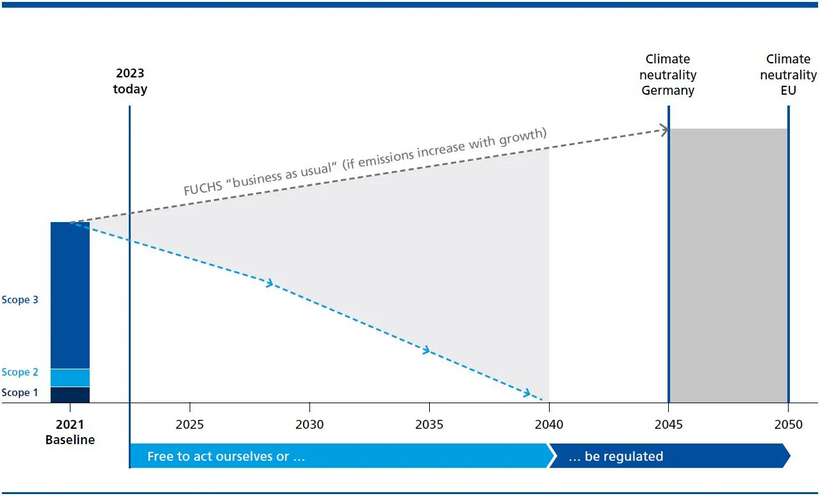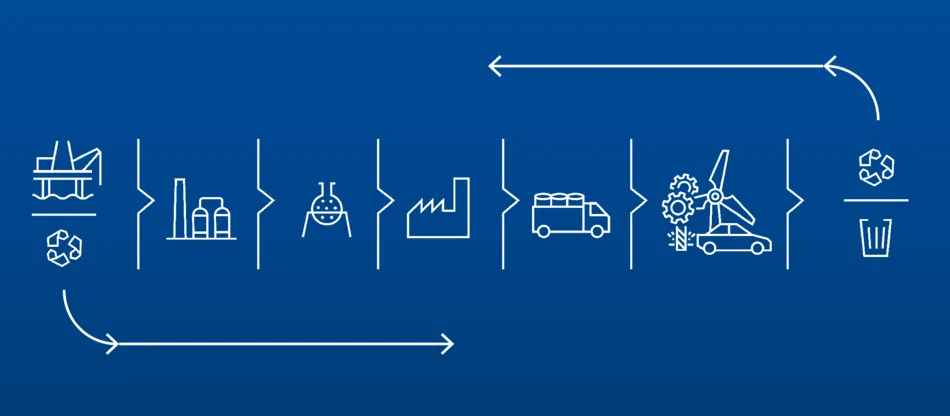Sustainability Strategy

Already in 2019, FUCHS commited to offsetting its CO2 emissions in the "gate-to-gate" scope from 2020 for all producing FUCHS companies. As early as 2021, for the first time FUCHS also extended the recording of its corporate footprint and offsetting for all Joint ventures to 100%. For this purpose, all greenhouse gas emissions of FUCHS that are directly attributable to our business activities "gate-to-gate" have been determined retroactively since 2019 and are offset by investments in climate protection projects. FUCHS restricts its choice of projects for this purpose to high-quality certifications susch as UN Gold Standard or VERRA.
Nevertheless, offsetting measures are only the last step undertaken once avoidance and redution measures have met their limits. FUCHS is therefore continously expanding the proportion of renewable energies that make up its power supply, with the aim of gradually sourcing its electricity worldwide from renewable sources.
In addition, FUCHS 2022 has been working on the development of a longer-term sustainability strategy for the Group with science-based targets
As part of this strategy, FUCHS has committed to reducing emissions along the entire value chain ("cradle-to-grave") by at least 90% compared to the base year 2021 via medium-term targets in 2030 until the net zero target year 2040.
In this context, related fields of action and objectives were also developed with the Group functions development, purchasing, product management, and supply chain management and projects for implementation were defined.
Circular economy
Our sustainability strategy aiming at decarbonisation will also include conceptualising strategic areas of activity for aspects of the circular economy. To gradually become less dependent of fossil raw materials, FUCHS will increasingly switch to recycled raw materials and will likewise contribute to ensuring that the waste streams generated by FUCHS lead downstream to material recycling.
We want to play an active role in shaping the circular economy and we see these developments as great opportunities for us to support our customers on this journey.

In our view, the circular economy has to be seen as a holistic concept of interlinked elements along the entire value chaing. Only through this integrated approach the goals of the circular economy can be implemented on a sustainable basis: reducing waste to a minium and reusing, remanufacturing and recycling materials as often as possible.
This holistic concept consists of three guiding principles that can be mapped along our entire value chain.
Time to ACT
Renewable, bio-based, recycled – striving towards circular economy
FUCHS aims to achieve climate neutrality by 2040. But in order to reach this goal in time, we have to act now. And deploy one of our biggest sustainability instruments yet: Advanced Circular Technologies or ACT. ACT answers the challenge to fully transform our value chain from linear to circular without compromising on performance. As a first step, we gradually replace finite with renewable, bio-based or recycled materials and make sure that everything leaving our factories can itself be effectively recycled.

